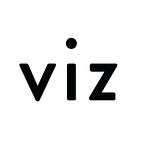Yoshi’s invitation
Viz for Social Good Spotlight Series
Around the world, volunteer thinkers and makers make Viz for Social Good possible. These “thinkerers” bring their knowledge, skills, optimistic attitudes, and values to data viz projects for the social good. Mission-driven organizations benefit from this collaboration by seeing their data transformed into vivid and shareable stories. Volunteers work on these projects through local chapters that host Hackathon events. They may also volunteer online and submit their work for review by the VFSG team and the partner organization.
From time-to-time, we’re shining a spotlight on our volunteers, so we can learn more about the person behind the data visualizations published online. Our spotlight series takes us to Tokyo, Japan, home to Yoshitaka Arakawa, one of our dedicated volunteers. A graduate of Nagoya University, Yoshi studied engineering and went on to study Data Science and Marketing through Extension courses at the University of California at Irvine. At present, Yoshi is a Business Intelligence Developer at Rakuten.
Yoshi’s favorite data visualization tool is Tableau, which he’s been using since 2017. Recently, he’s also been working with Amazon Quick Sight, DOMO, Microstrategy, and Microsoft Power BI.
Why does Yoshi prefer Tableau? “It’s the most powerful but easy-to-use tool,” he says. “Compared to other tools, Tableau ensures our creativity, unlike other tools where we have to specify chart types first. Also, I love the community. They are quite open to sharing their knowledge and they are encouraging each other, which helped me get advanced in Tableau many times. Tableau Public is another reason because it’s also a great platform for us to share and learn.”
In this convivial spirit, Yoshi has been very involved in activities and grassroots organizations that promote the best possible use of these powerful analytic and visualization tools.
Yoshi joined us to talk about his work with Viz for Social Good.
How did you get involved in Viz for Social Good (VFSG)?
I got involved in VFSG at the very first VFSG Hackathon event in Japan. I was just an attendee, and I just enjoyed the event and being introduced to the organization. I was totally amazed by the organization, its mission, and how much difference they make in the world.
Also, at that time, I was looking for socially good projects to practice my data visualization skills, and I was attracted by the VFSG projects I saw and read.
Why do you continue to volunteer?
I love the organization’s mission and values that have been delivered to the world. With the power of data visualization and data analytics, I strongly feel that we are contributing to making the world a better place. In fact, some of the client organizations were global organizations such as the United Nations Development Programme, and I was proud of being a part of this project to help people resolve social issues.
What are some VFSG projects you’d like to highlight?
Girls + Data
🎉 This project was chosen as the VFSG winner!
Crisis Risk Dashboard for the UNDP
Any advice to anyone who wants to become a volunteer with VFSG or improve their data viz skills?
If you hesitate to join us because you are not confident in your skills, I would say you should get involved anyway because:
- First of all, no one criticizes your output. We all welcome your participation and would have some feedback or advice. They are all kind. I promise.
- Once you’ve made your project, you can make comparisons between your work and others’ work, which will provide you with a great learning opportunity. If you want to learn from a project, you will need to involve yourself deeply to know the dataset and the project background. This is a critical part of a data visualization process.
- One of the good aspects of the VFSG projects is that they are frequent: a new project comes right after a completed one. With this frequency, you can practice your skills with real-world data by working with real needs from clients.
- This activity can be excellent for your career, especially if you are new to this area. Jobs in data science or data analytics sometimes expect some experience. However, you can also show your VFSG projects as examples of your capability — the process is quite similar to real data visualization projects. You can develop your portfolio with the VFSG projects.
Yoshi sums up his experience with us by offering a friendly invitation to become part of our community, to support your own goals and sense of a greater purpose in the world:
VFSG projects are definitely beneficial to your learning and your career. Sometimes the projects are tough, but that’s only because they are real-world problems. Once you get through them by joining us, you should have a strong capability of helping people with data.
